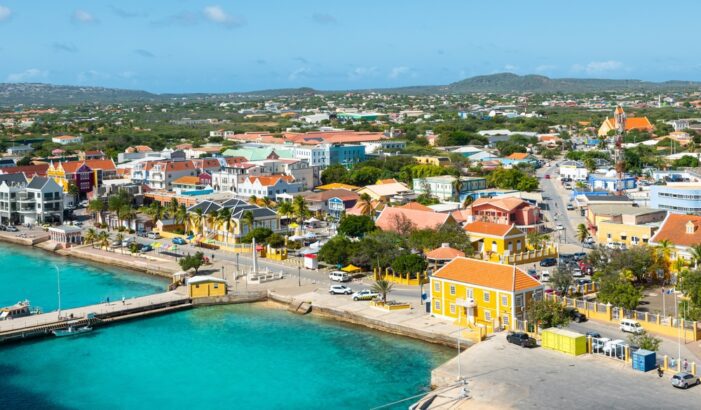Though the Netherlands Antilles formally dissolved in 2010, its legacy lives on in the current Dutch–Caribbean territories—namely Curaçao, Sint Maarten (constituent countries) and Bonaire, Saba, Sint Eustatius (special municipalities). Together they form the Dutch Caribbean, a multilingual, multicultural region with strong economic infrastructure and investment potential grounded in Afro‑Caribbean heritage. For African American investors seeking culturally resonant opportunities with international access, this region offers rich possibility.
- Cultural Mosaic & Heritage
The former Netherlands Antilles islands represent a fusion of African, European, Indigenous, Latin American, and Jewish influences. Curaçao and Bonaire are rooted in African-descended communities and have long embraced Papiamentu—a Portuguese-based creole with Spanish, Dutch, African, and Arawak elements. Sint Maarten, Saba, and Sint Eustatius speak English-based creoles influenced by African and Anglo traditions.
Music and festivals are central to island life. Curaçao and Aruba’s uniquely Caribbean genres include tumba, mazurkas, danzas, and salsa; the SSS islands host calypso, soca, zouk, bouyon, reggae, and J’ouvert-style Carnival events—including the symbolic burning of King Momo.
Celebrations across these islands feature richly Afro-Caribbean cultural practices—Carnival, roadblock street parties, and traditional drumming—inviting African American investors to engage with shared narratives through cultural tourism, performance art, and heritage events.
- Multilingual Advantage
Dutch remains the official language, while Papiamentu/Papiamento is dominant in Curaçao, Bonaire, and Aruba. English and Spanish are commonly spoken across islands. In SSS islands, English-based creoles serve daily communication. This linguistic diversity fosters strong diaspora accessibility and strategic positioning for creative, heritage, and tourism ventures rooted in cultural exchange.
- Economic Landscape & Strategic Sectors
Financial Services & Offshore Economy
Historically, the Netherlands Antilles—particularly Curaçao—developed a strong offshore financial services and incorporation hub. The region benefited from oil transshipment infrastructure, built in part by the refining presence on Curaçao, and active offshore banking regimes.
Tourism & Port Development
Tourism is vital: island-flavored cruise and marina infrastructure, well-developed ports, deep-water harbors, and strong flight connections support a high per capita GDP (>USD 29k across Dutch Caribbean) and high internet penetration rates (86% in Curaçao).
Creative Industries & Blue Economy
Curaçao has prioritized economic diversification around seven growth sectors: creative industries, education services, blue bioeconomy, fintech & IT, medical tourism, and port/logistic services.
Informal Economy & Local Entrepreneurship
Shadow economic activity—especially micro-trade and informal services—constituted up to 10–14% of the country’s GDP in earlier decades, indicating a robust grassroots entrepreneurial tradition.
- Residency & Investment Incentives
Curaçao Investor Permit (Path to EU Citizenship)
Curaçao offers a residency-by-investment program that allows investors to obtain long-term residency with a path to Dutch citizenship after five years. Eligible investments include real estate, financed businesses employing locals, or securities-backed local enterprises. Minimum investment thresholds begin at around US $280,000, offering an attractive Caribbean-to-EU gateway.
Tax & Corporate Framework
The Dutch Caribbean, including Curaçao, historically featured low corporate tax rates, withholding exemptions, and the ability to host holding companies with favorable treatment of capital gains and dividends—supported by the Kingdom’s extensive double tax treaty network.
As part of the OECD and Financial Action Task Force (FATF), Curaçao maintains regulatory compliance while retaining tax-neutral appeal for international financial structuring.
- Opportunities for African American Investors
Heritage Tourism & Cultural Ventures
African American investors can create culturally rooted experiences—boutique hotels, art festivals, culinary tours celebrating Papiamentu culture, music residencies, or Carnival collaborations. Projects amplifying Afro-Caribbean narratives invite authentic engagement.
Digital Media & Creative Industries
With high internet penetration and creative sector momentum, ventures in film, media content, Papiamentu storytelling, or diaspora art platforms can thrive—leveraging Curaçao’s creative industry growth strategy.
Offshore Business & Holding Structures
Diaspora investors in fintech, asset management, or digital advisory services can use Dutch-Caribbean corporate vehicles for transnational operations, benefitting from zero withholding tax, EU treaty coverage, and stable legal frameworks.
Blue Economy & Logistics
The region’s deep-water ports, strategic location between Europe and the Americas, logistical infrastructure, and plans for blue economy development make it ideal for ventures in maritime services, renewable aquaculture, or port-linked business models.
- Strategic Roadmap for African American Investors
- Define your purpose—Choose between heritage-based tourism, digital/creative ventures, offshore finance, or blue economy/logistics.
- Select jurisdiction—Curaçao offers investor permits; Bonaire, Saba, or Sint Eustatius may offer holding benefits under Dutch law.
- Engage local partnerships—Work with cultural associations, local entrepreneurs, investment agencies like CINEX, and heritage bodies to ensure authenticity and community ownership.
- Leverage multilingual context—Integrate English, Creole, and Papiamentu in branding and engagement to reflect cultural resonance.
- Use legal counsel—Navigate Kingdom-level regulations, tax treaties, residency requirements, and trust vehicles.
- Embed diaspora ethos—Highlight Afro-Caribbean history, storytelling, and identity in project design and traveler experiences.
- Outlook & Legacy Value
While the Netherlands Antilles as a political unit ceased in 2010, its islands remain dynamic, stable, and culturally rich assets of the Dutch Caribbean. They offer a distinct neighborhood where African American investors can connect heritage to impact—through creative tourism, offshore business, and cross-continental mobility.
With EU recognition through Curaçao’s investor-permit program, tax-favorable frameworks, and evolving creative and blue economy sectors, this region offers a bridge: diaspora legacy with global opportunity. For investors rooted in purpose and culture, the Dutch Caribbean presents a fertile space where profit, identity, and impact converge.


